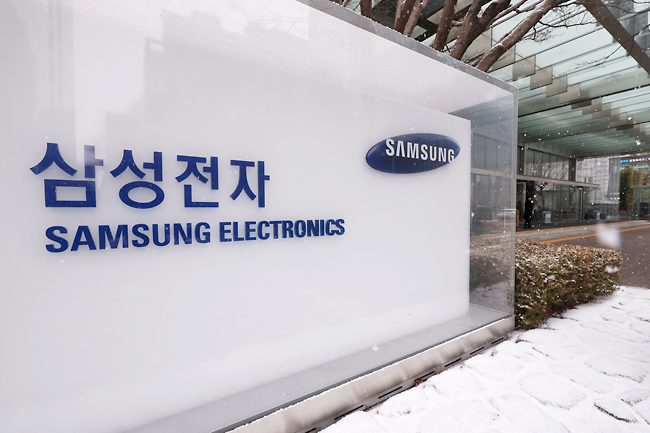ANN/THE KOREA HERALD – Samsung Electronics, the world’s largest memory chipmaker, reported weaker-than-expected chip earnings in 2024 despite record sales, as it struggled to keep up in the artificial intelligence (AI) chip race amid plunging legacy product prices.
The company said it achieved all-time high semiconductor sales of KRW111.1 trillion
(USD76.4 billion) in 2024, but the operating profit stood at KRW15.1 trillion, falling short of market expectations and coming in behind its smaller rival SK hynix, which posted KRW23.4 trillion in the same period.
Overall, with its business spanning smartphones and televisions to semiconductors, Samsung logged sales of KRW300.9 trillion in 2024, with operating profit standing at KRW32.7 trillion. The annual revenue was the second highest, trailing only its record in 2022.
“The management and all the employees are very aware of the challenges that the company is facing, and we are fully committed to overcoming the current difficulties,” Chief Financial Officer and Executive Vice President Park Soon-cheol said, making his first and rare appearance during earnings call on Thursday.

“Samsung’s business portfolio spans a diverse range of industries that operate within different business cycles and market dynamics, which cause fluctuations in our company’s performance. We are confident that this diversity along with the progress being made in our businesses will drive gradual recovery,” Park said, adding that he is committed to reinforcing the trust of shareholders and investors. The chipmaker said it will start delivery of the enhanced model of HBM3E from around the end of the first quarter of this year. HBM3E is the fifth-generation high bandwidth memory chip, a stacked DRAM chip used as a key component for enhancing AI processes for graphic processing units.
“We started mass producing 8-layer and 12-layer HBM3E chips and expanded supply to multiple GPU makers and data centre clients in the fourth quarter of last year. So sales of HBM3E surpassed that of HBM3,” the Executive Vice President in charge of the memory chip business Kim Jae-june said.
The chip giant forecasts there may be a temporary gap in demand due to the impact of the advanced chip export controls recently announced by the United States (US) government and the fact that major customers are shifting their existing demand toward its improved HBM3E product.
The company has reportedly come up with the enhanced HBM3E model upon request of Nvidia, the world’s top GPU maker.
The company said it is also preparing to start mass production of the next-generation HBM4 using a leading-edge 1c-nanometer process node in the second half of this year. Ramping up production of the upcoming models, Samsung said it aims to double its total HBM bit supply in 2025, compared to last year.
Regarding 16-layer HBM3E products, the company anticipated there would not be any commercial demand, but it has produced samples and delivered them to key customers for technology validation.
As legacy chips such as DDR4 and LPDDR4 are becoming less profitable amid falling prices, Samsung will cut the sales proportion to a single digit. Previously the chips took about 30 per cent of sales, according to the memory business chief.
“As uncertainties in demand continue, we are continuing to shift our business portfolio focusing on high-value-added products. We are optimizing the line operations for some legacy nodes, while accelerating to cutting-edge nodes to respond to the demand for high-performance and high-density products,” Kim said.


